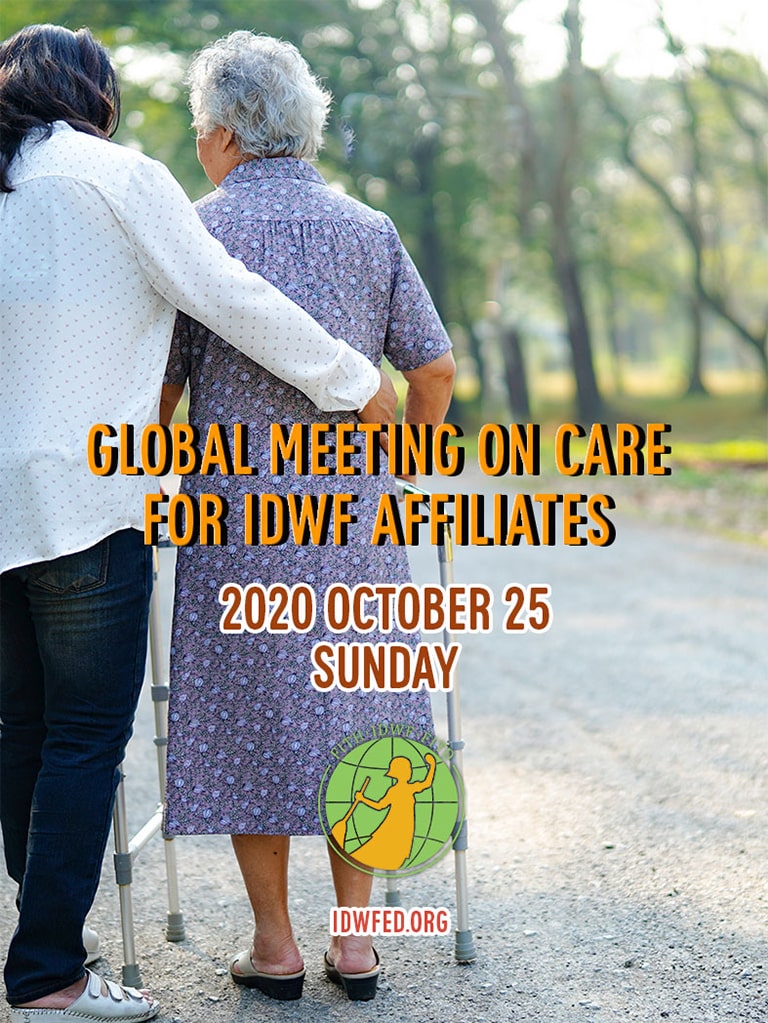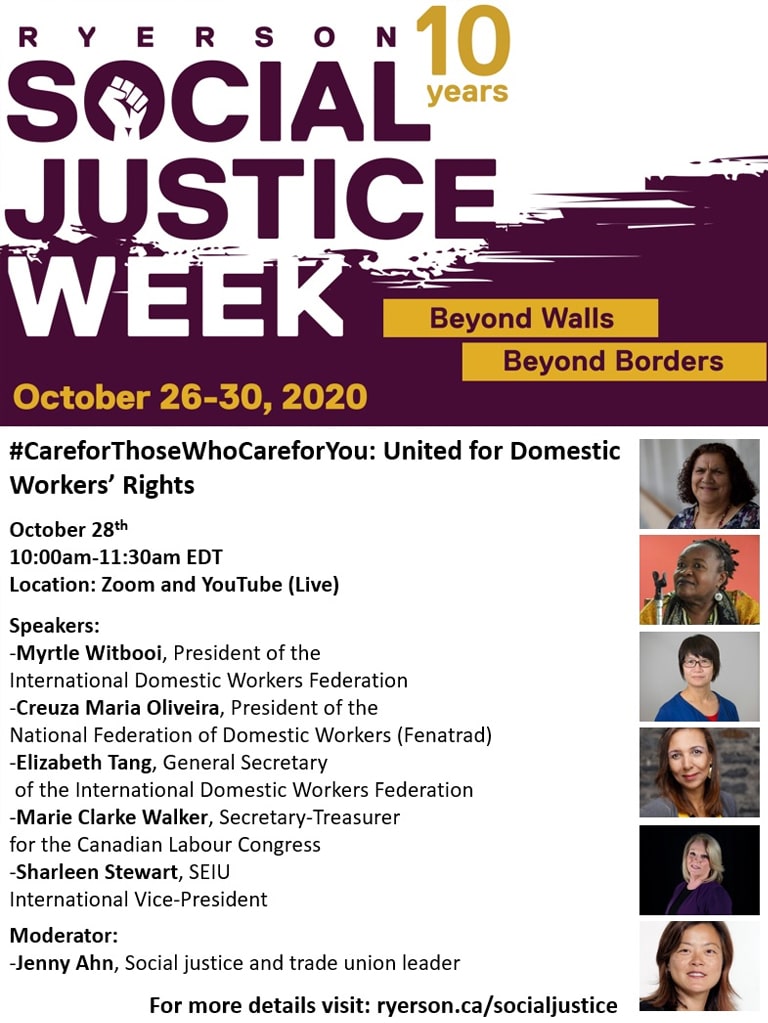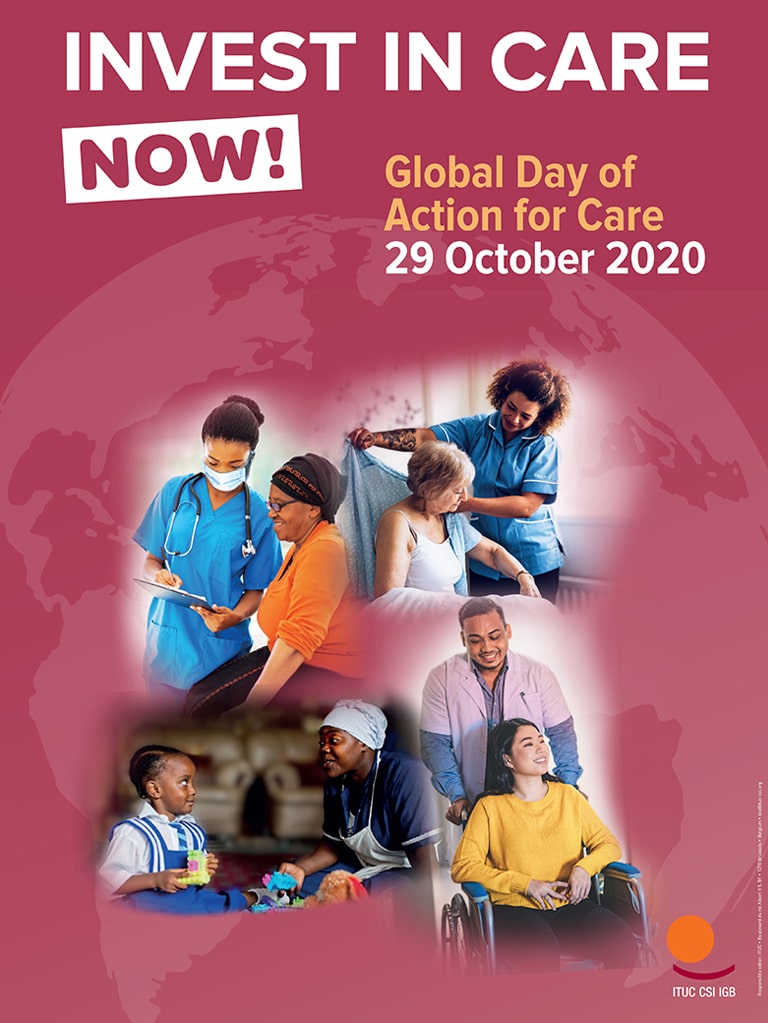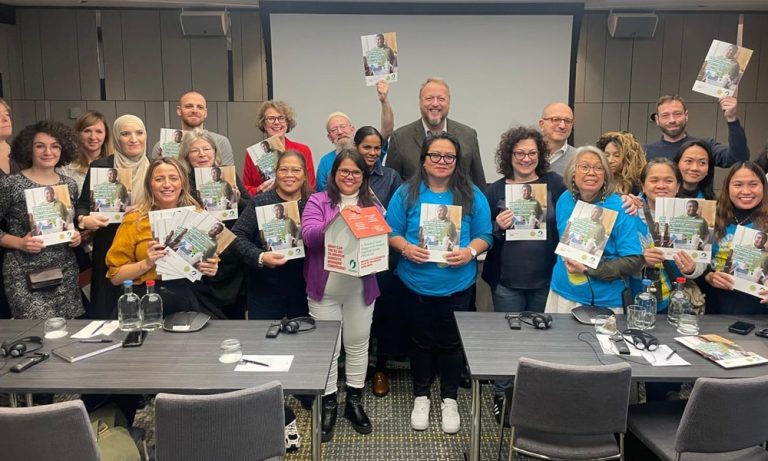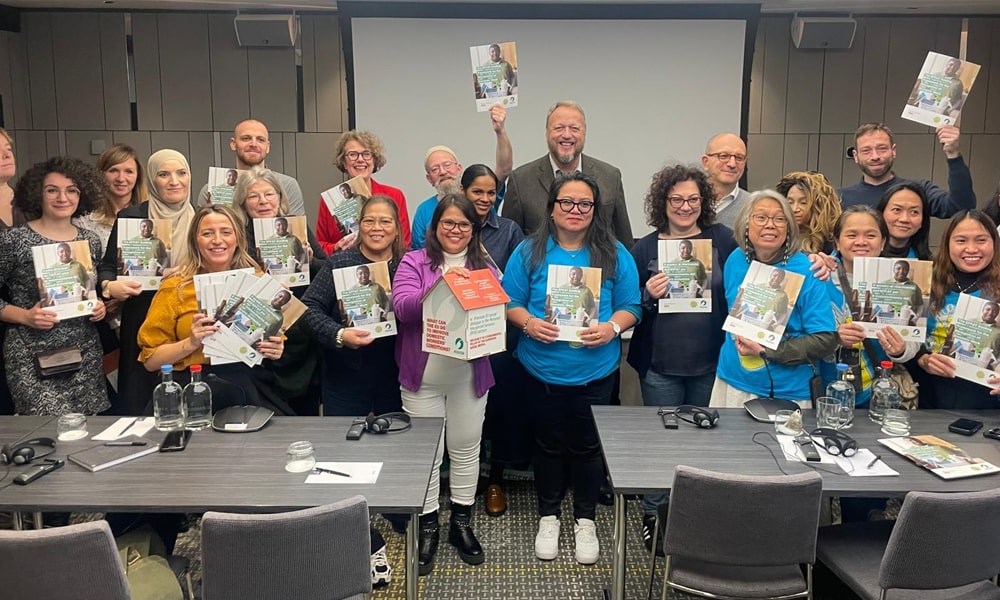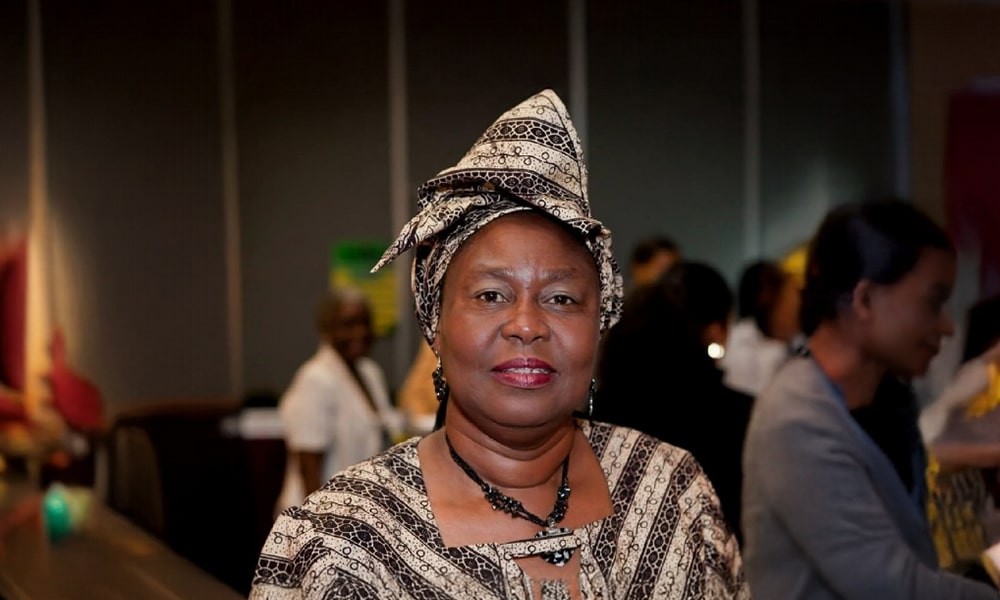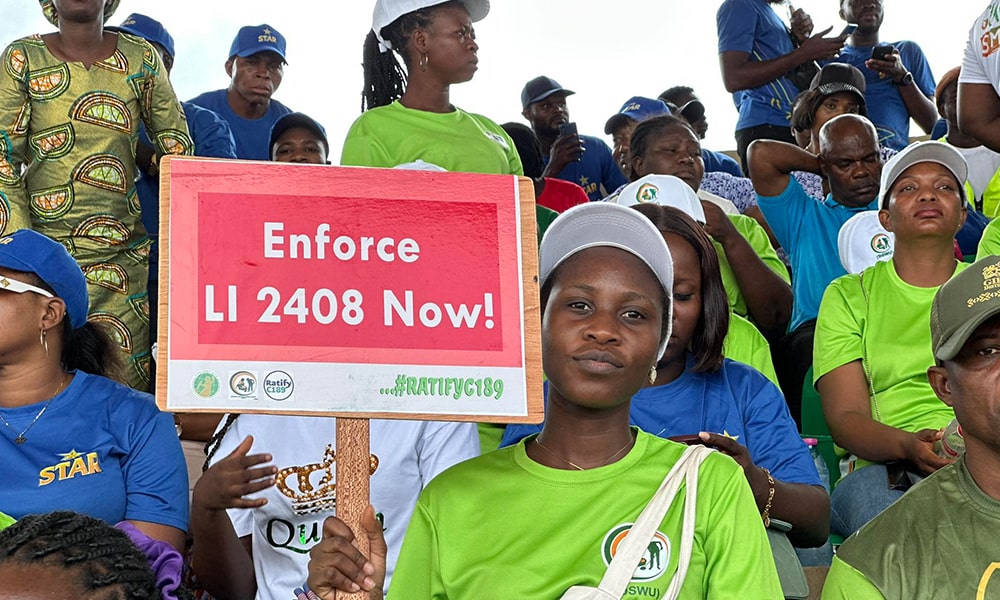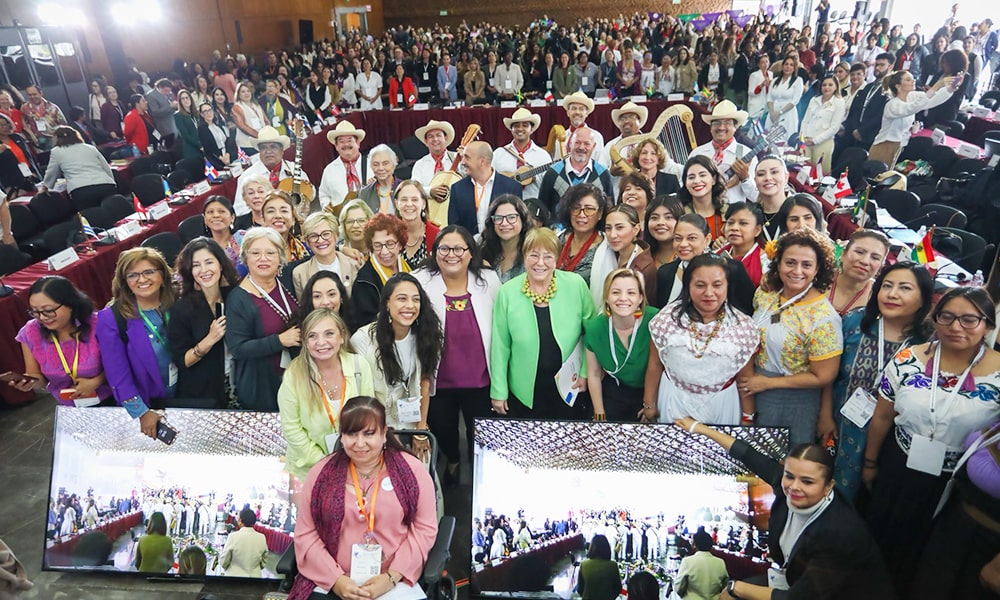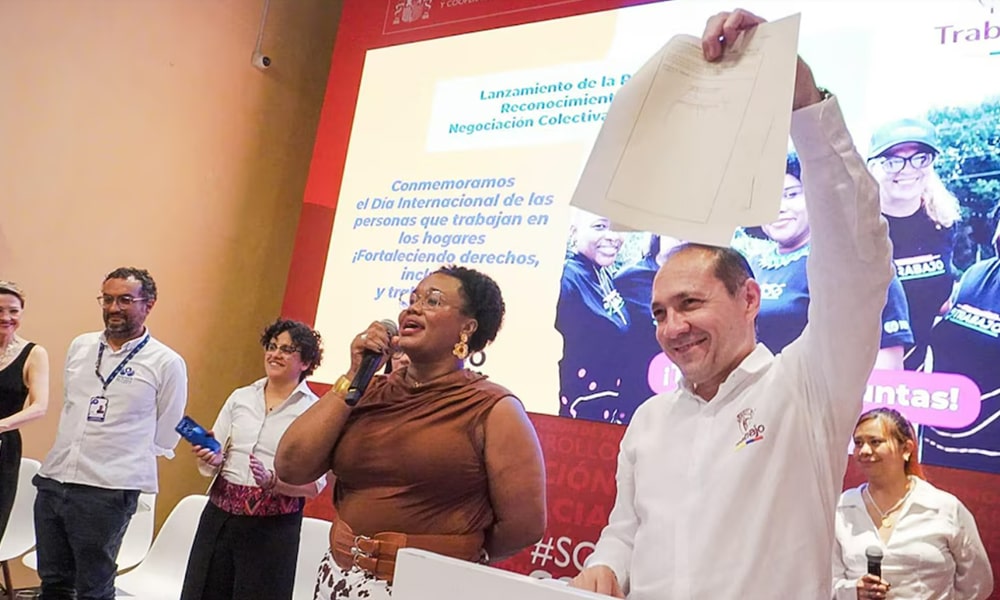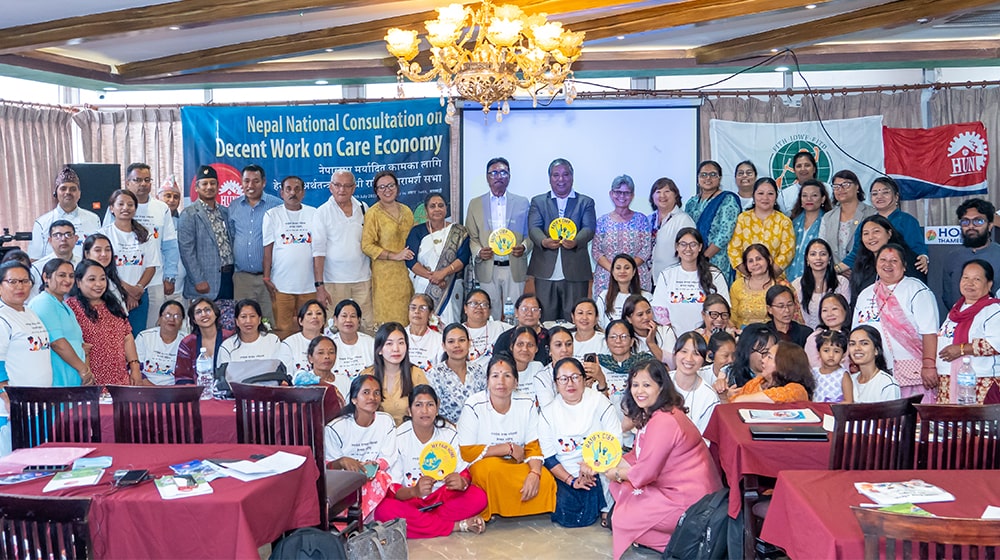Domestic workers as providers and recipients of care, should have both their labour rights and care needs to be recognized.
Understanding CARE
What is CARE?
Care is about the activities done for a person’s own well-being, including one or more persons’ physical, psychological, emotional and developmental needs.
There is direct and indirect care:
Direct Care

Is personal and relational care activities, such us feeding a baby or nursing an ill person.
Indirect Care

Is about activities such as buying food, cooking, cleaning, and other work to provide care indirectly.
Care work can be paid or unpaid, in public or private places.
Paid care work in private homes is done by domestic workers or caregivers.
CARE Economy is the sum of all forms of care work.
But how do governments define Care Work?
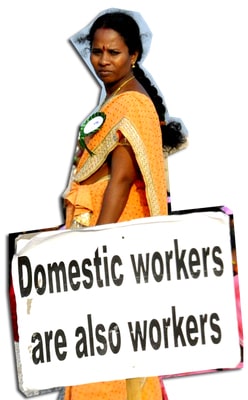
The ILO does not provide any no legal definition of care work or care workers. Care work remains a broad concept.
Some countries have their own legal and policy definition of care workers who provide direct personal care. They may have different regulations in place for specific tasks in care work.
These countries usually provide the legal recognition of the rights of those defined as care workers, as well as the qualification framework of their skills and experiences.
However, there are other countries where there are no such provisions and definitions of care work.
Domestic Workers
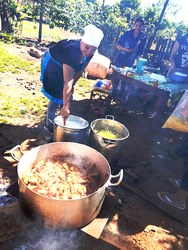
Domestic workers do both direct and indirect care in or for households. They are part of the care workforce and globally an essential part – The 70 million domestic workers over the age of 15 (ILO’s figure)
make up around 23% of the global care workforce (which number 308.6 million).
Care work is seen as a women’s work and their work is often undervalued by the society.
Most of the care activities in private homes are delivered by family members, mainly women and girls for free. According to the ILO, 76% of the total unpaid care work is done by women. This is one of the reasons why it is not recognized as work and just seen as something what “women do”.
Paid care work in private homes is done by domestic workers.
Our society in general does not recognize the value of these works. The women who are paid to care for people’s and families, like domestic workers, are often excluded from labour and social protection. Live-in domestic workers who are often migrants, in particular, face the most vulnerable situations, such as long working hours, no or little rest time, no privacy and very little income – or no income at all but only food and accommodation as in-kind payment.
The ILO estimates that 75% of domestic workers sector is informal, thus only 25% of the global workforce are covered by labour laws and social protection.
Rights of Domestic Workers in the Care System
Domestic workers as providers and recipients of care, should have both their labour rights and care needs to be recognized.
The 2nd Congress of IDWF in 2018 resolved the following call to the government and the public:
- Ratification of C189 to ensure Labour and social protection of domestic workers
- Care for all – a comprehensive system of care to address the care needs of the population, including domestic workers
- Protection for migrant domestic workers
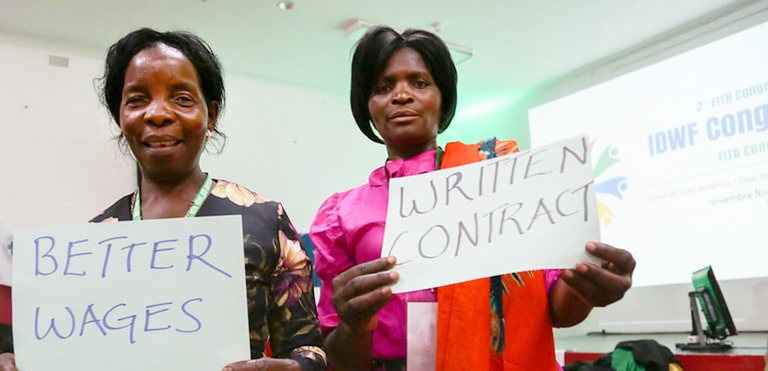

Campaigns for just CARE system
25 October 2020
Global Meeting on CARE for IDWF Affiliates
As a preparation, IDWF affiliates will come together at this workshop to learn from each other what is Care work and Care Economy. How we as domestic workers, together with other workers in the Care economy, can struggle for the rights in care.
28 October 2020
“Beyond Walls, Beyond Borders”:
#CareForThoseWhoCareForYou – United for Domestic Workers’ Right
As one the ten events of the “Beyond Walls, Beyond Borders,” 10th Annual Ryerson Social Justice Week, this panel discussion will focus on the organizing power and resiliency of domestic workers in combating patriarchy, systemic racism and class exploitation.
29 October 2020
Global Day of Action: Invest in Care, Now!
Will be launched by the International Trade Union Confederation (ITUC) and Global Union Federations including IDWF, IUF, UNI, PSI, EI and WIEGO which represent workers in the care economy.

